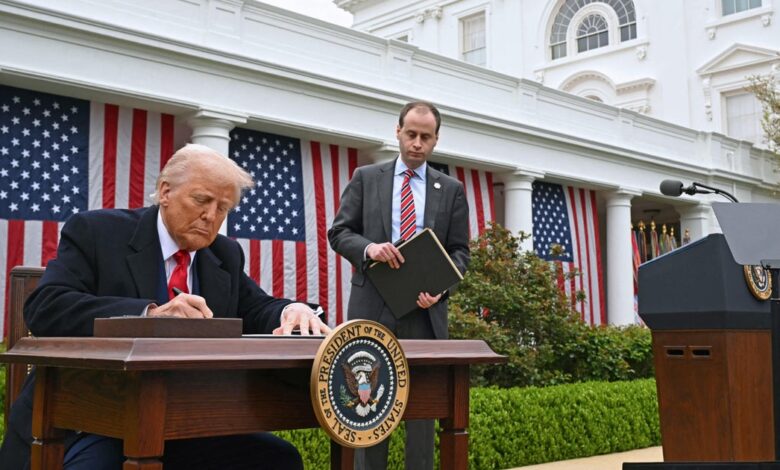Trump announces new tariffs on what he calls “Liberation Day” amid fears of higher prices

President Trump made a bold move on Wednesday by announcing new tariffs that will have a significant impact on trade with foreign countries. The president signed an executive order imposing a minimum baseline of 10% tariffs on goods imported from all foreign countries, along with higher “reciprocal” tariffs on nations that impose tariffs on U.S. exports. Despite warnings from economists about increased prices, President Trump insisted that the U.S. will no longer be taken advantage of.
The new tariffs will take effect on April 5 at 12:01 a.m., with higher reciprocal tariffs going into effect on April 9 at 12:01 a.m. Countries such as the European Union, China, and Israel will see tariffs higher than 10%. President Trump emphasized that chronic trade deficits are a national emergency that threatens U.S. security and way of life, and these tariffs are necessary to address the issue.
The president proudly displayed a chart showing the new tariff rates that will be imposed on various countries. China will face a 34% tariff rate, the European Union 20%, Taiwan 32%, South Korea 25%, and Israel 17%. However, Canada and Mexico are not subject to these tariffs for now, as tariffs previously imposed by the president remain in effect.
President Trump’s announcement was met with mixed reactions, with some praising the move as a declaration of economic independence while others expressing concerns about potential negative impacts on the economy. Economists and taxpayer advocacy groups have cautioned that tariffs could lead to higher prices for American consumers and disrupt economic growth.
Despite criticism, President Trump remains steadfast in his decision, emphasizing that these tariffs are necessary to protect American industries and workers. The president’s plan is aimed at bringing jobs back to the U.S. and ensuring a level playing field in international trade.
In conclusion, President Trump’s new tariffs have sparked debate and raised questions about their potential impact. While some see them as a necessary step to protect American interests, others are concerned about the consequences they may have on the economy. Only time will tell how these tariffs will shape the future of U.S. trade relations.





